News
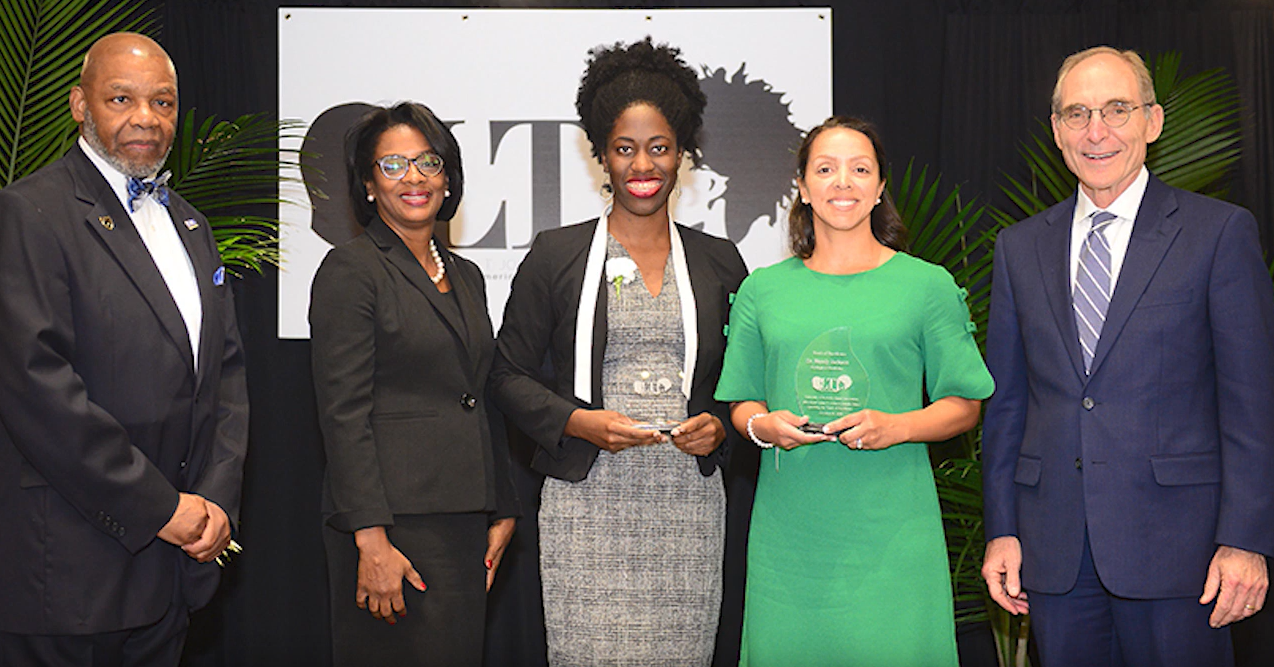
As a young student who was proficient in science, Dr. Eseosa Ighodaro, always saw herself pursuing a career in medicine. But it wasn’t until applying to medical school that she discovered there was another path she wanted to follow.
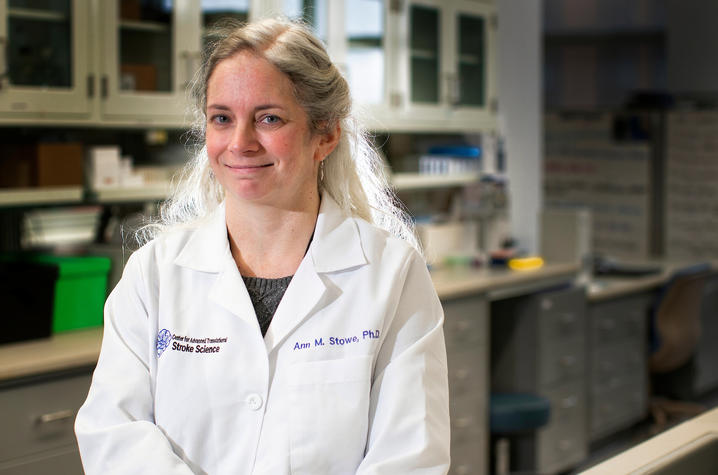
University of Kentucky College of Medicine researcher Ann Stowe describes her career path as nontraditional. After earning a bachelor’s degree in fine arts, Stowe decided to pursue graduate study in biomedical research instead of art history.
Today, the associate professor in UK’s Department of Neurology studies how the brain recovers from stroke. The same passion for creativity that attracted Stowe to studying the arts is what drives her in the laboratory.
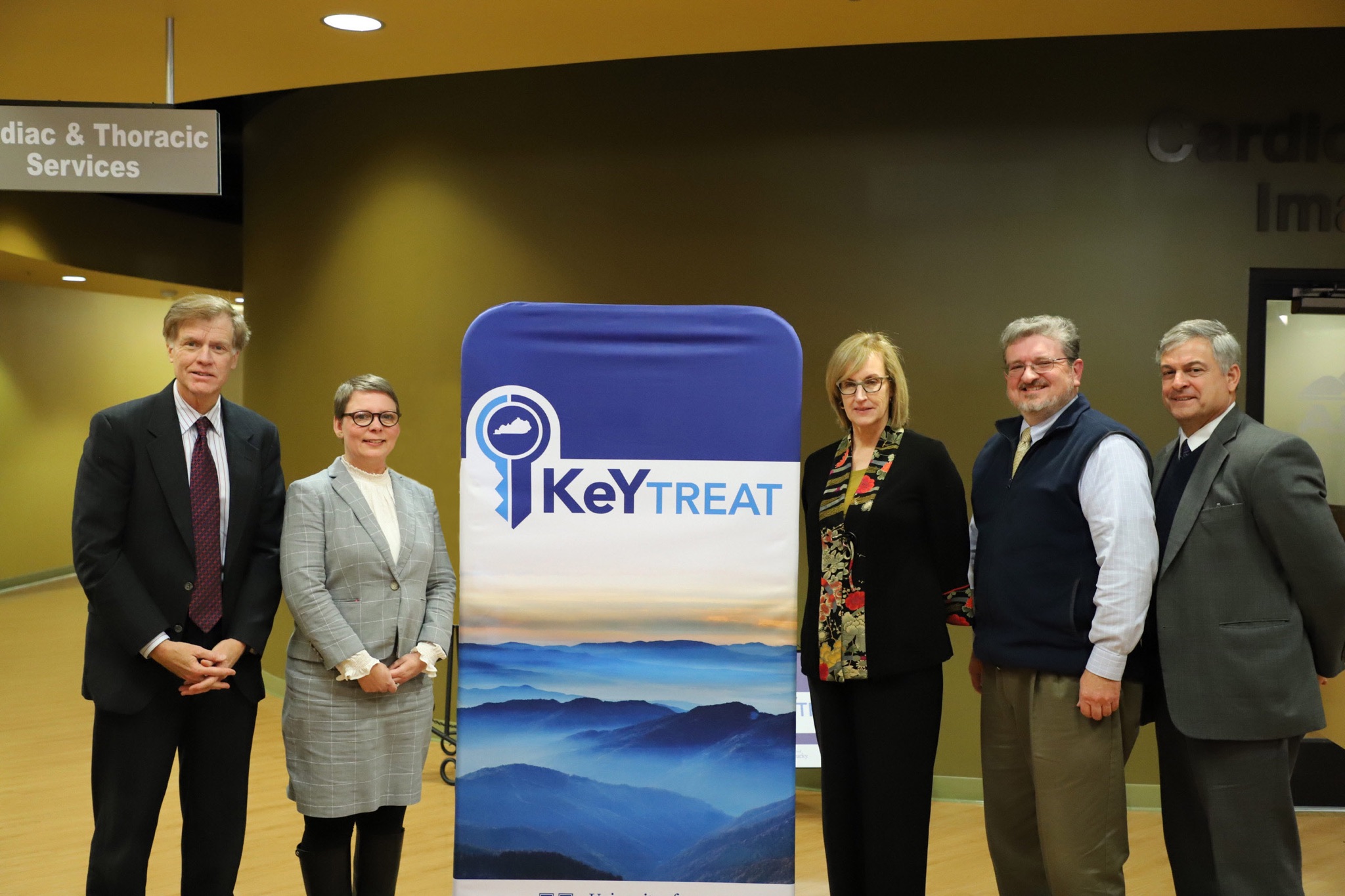
Today, University of Kentucky officials provided updates on the recently launched Kentucky Viral Hepatitis Treatment Project (KeY Treat), a three-year, $15 million study co-funded by the National Cancer Institute (NCI) and National Institute on Drug Abuse (NIDA) with the ultimate goal of eradicating the hepatitis C virus (HCV) in Perry County, Kentucky.
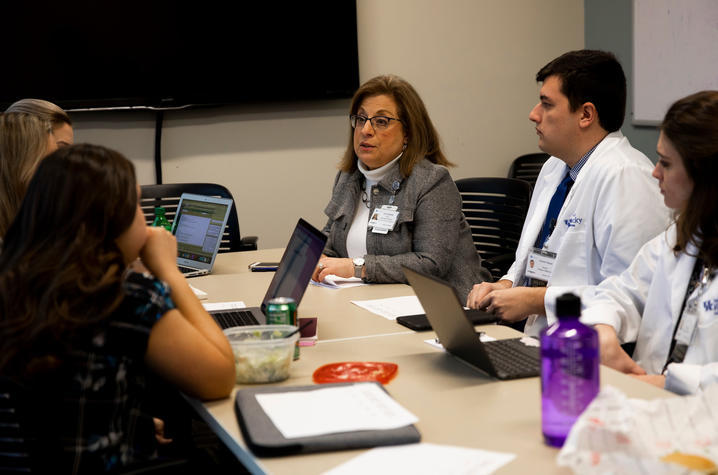
The University of Kentucky College of Medicine’s Department of Family and Community Medicine’s Primary Care Training Enhancement (PCTE) grant team was recently selected to receive the Outstanding Educational Program Award by the Association for Prevention Teaching and Research (APTR). This award honors an innovative program, department, or academic institution for their involvement in advancing undergraduate or graduate medical education in prevention and public health which furthers students’ interest in the discipline.
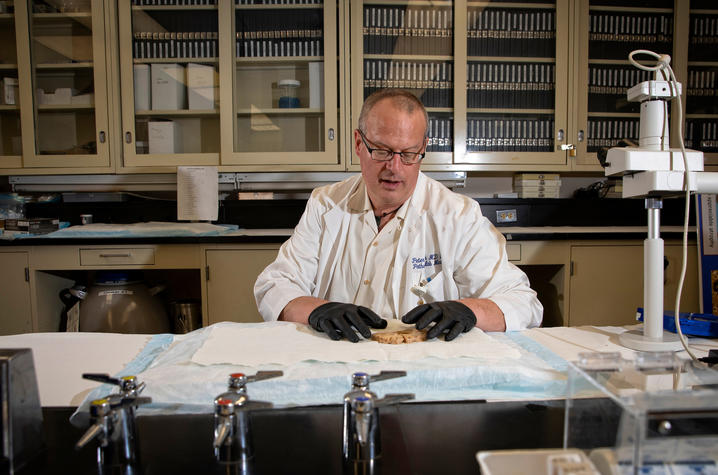
An international group of experts led by Dr. Peter Nelson, a neuropathologist at the University of Kentucky Sanders-Brown Center on Aging, is being recognized as one of the top science stories of 2019 by Discover Magazine.
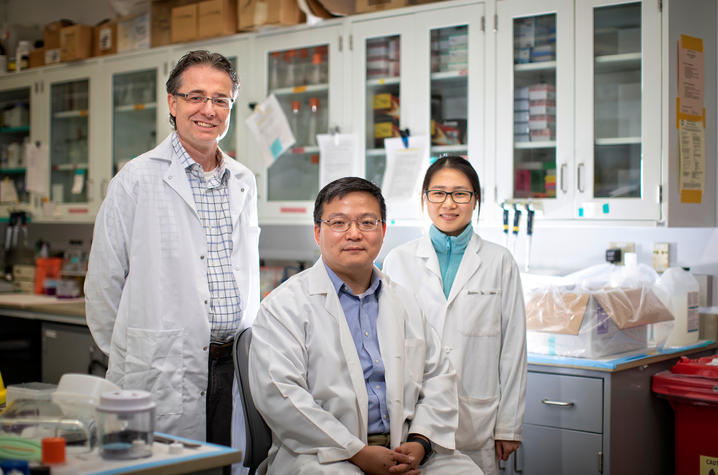
Researchers at the University of Kentucky’s College of Medicine have found that a class of antibiotics called aminoglycosides could be a promising treatment for frontotemporal dementia.
Results of their proof of concept study, which was a collaborative effort between UK’s Department of Molecular and Cellular Biochemistry and the University of California San Francisco’s Department of Pathology, were recently published in the journal, Human Molecular Genetics.
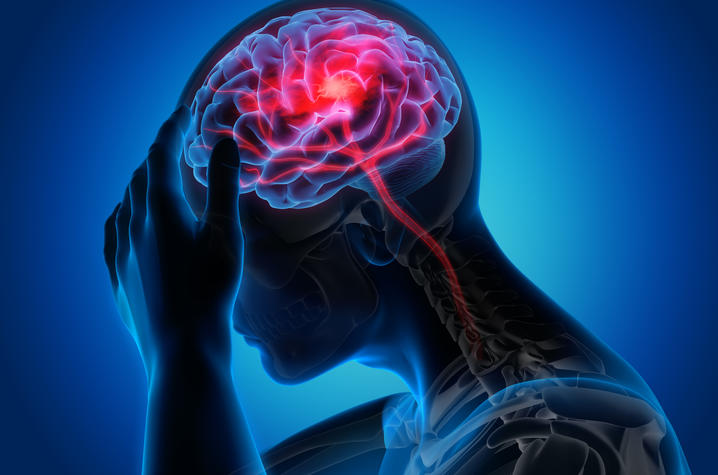
New research shows that the microorganisms in our gut could help protect brain cells from damage caused by inflammation after a stroke.
The study, published in the Journal of Neuroscience by researchers from the Ludwig Maximilian University of Munich, University of Kentucky’s College of Medicine and University of Texas Southwestern Medical Center reveals that supplementing the body’s short chain fatty acids could improve stroke recovery.
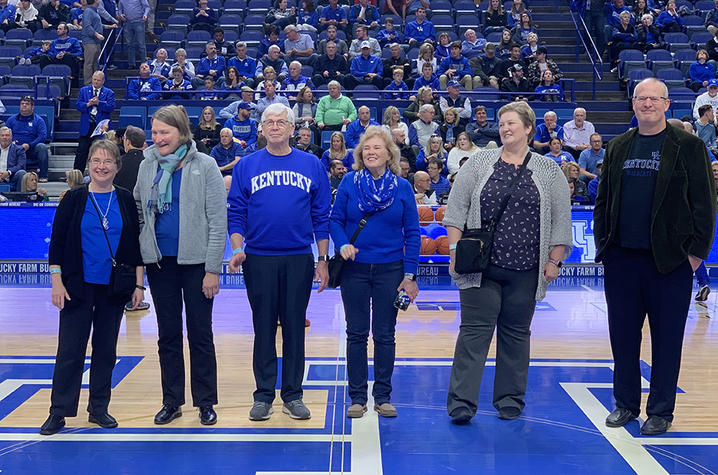
More than 70,000 Kentuckians are living with Alzheimer's disease, which likely means that you know someone whose life has been touched — directly or indirectly — by dementia. And since that number is expected to rise to more than 85,000 in the next five years or so, Alzheimer's will likely hit closer to home for many of us.

Subbarao Bondada, professor of microbiology in the Department of Microbiology, Immunology and Molecular Genetics in the University of Kentucky College of Medicine and Markey Cancer Center, has been named a Fellow of the American Association for the Advancement of Science (AAAS). Election as an AAAS Fellow is an honor bestowed upon AAAS members by their peers.

Luke H. Bradley, PhD, Chellgren Endowed Professor in the department of neuroscience, was recently selected by the Kentucky Council on Postsecondary Education as a member of its newly-established Faculty Advisory Network.
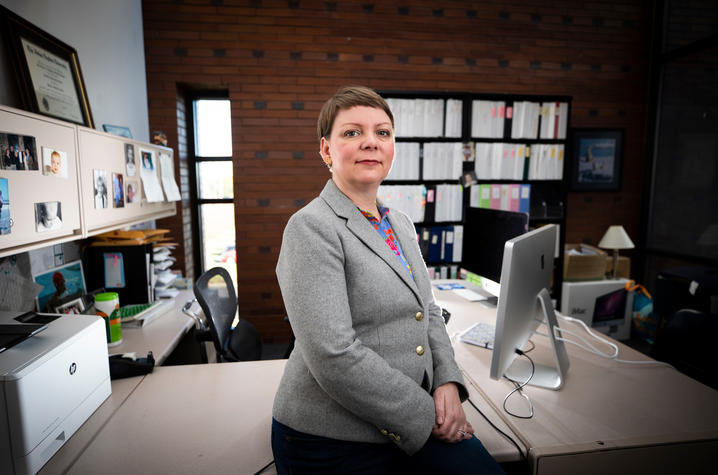
The University of Kentucky is tackling many of Kentucky’s toughest health issues through research aimed at making documented, measured progress.
Among the many ongoing examples of UK’s faculty researchers focusing their skills to combat a major health challenge is Jennifer Havens, professor of behavioral science in the UK College of Medicine and a faculty member in the Center on Drug and Alcohol Research.
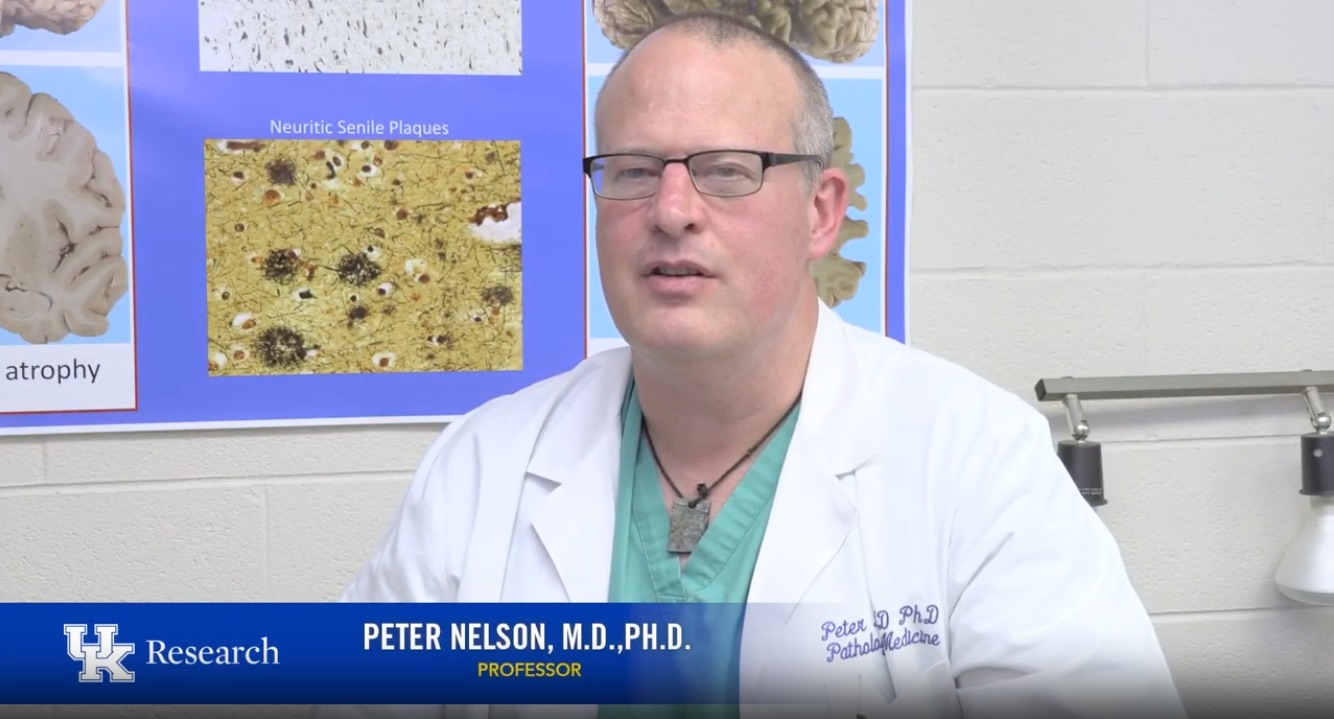
At the University of Kentucky, multiple innovative biospecimen resources are available to assist research. A video produced by the UK Center for Clinical and Translational Science (CCTS) highlights the biospecimen resources offered by the CCTS, the UK Markey Cancer Center, the UK Gill Heart Institute, and the Alzheimer’s Disease Center at the Sanders-Brown Center on Aging.

University of Kentucky Professor of Pharmacology and Nutritional Sciences Nancy Webb, Ph.D., has been honored by the American Heart Association with the Arteriosclerosis, Thrombosis, and Vascular Biology (ATVB) Distinguished Achievement Award.
The ATVB Council engages scientists and clinicians working to improve the prevention, diagnosis and treatment of heart disease. This annual accolade recognizes a member who has made major contributions to the council and substantial professional contributions to the field.
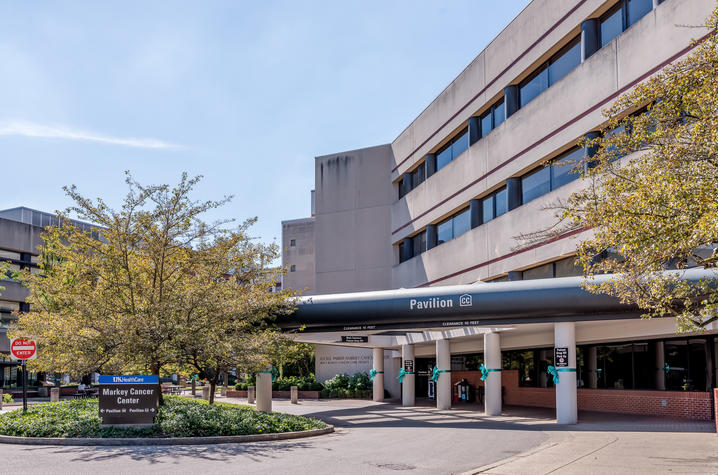
Cancer-control researchers at the University of Kentucky Markey Cancer Center and The Ohio State University Comprehensive Cancer Center – Arthur G. James Cancer Hospital and Richard J. Solove Research Institute (OSUCCC – James) aim to increase colorectal cancer screening and follow-up care among underserved individuals in Appalachia through a $5.7 million grant from the National Cancer Institute.

The University of Kentucky Sanders-Brown Center on Aging will hold the 9th Annual Markesbery Symposium on Aging and Dementia on Wednesday, Nov. 6. The scientific session opens with check-in and registration at 8:15 am in Karpf Auditorium, Pavilion A, UK Chandler Hospital 1000 S. Limestone. Speaker presentations begin at 9:30 a.m. and end at noon.
Judged poster session and boxed lunch will be held from 12:15 – 2:30 p.m. in the atrium of the Biomedical/Biological Sciences Research Building (BBSRB) 741 S. Limestone.
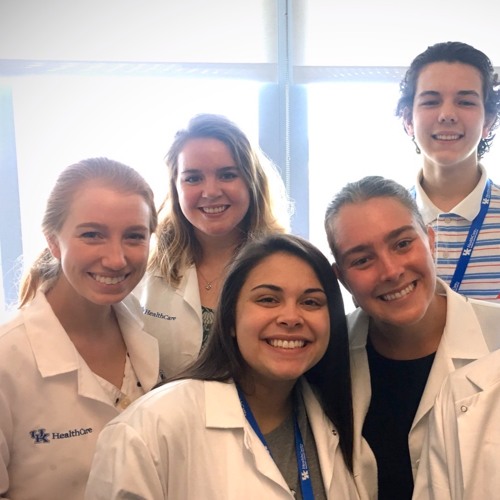
This Saturday student researchers in the Markey Cancer Center’s Appalachian Career Training in Oncology (ACTION) program will be recognized on Kroger field. The ACTION program reveals how the University of Kentucky, as a research-intensive university, can help students see what’s possible in their own careers and inspire them to impact their communities.

For two years, University of Kentucky researcher April Young and her team have been onsite in Eastern Kentucky working with community members to assess and gather information on substance use in rural communities for a project known as Kentucky Communities and Researchers Engaging to Halt the Opioid Epidemic, or CARE2HOPE.
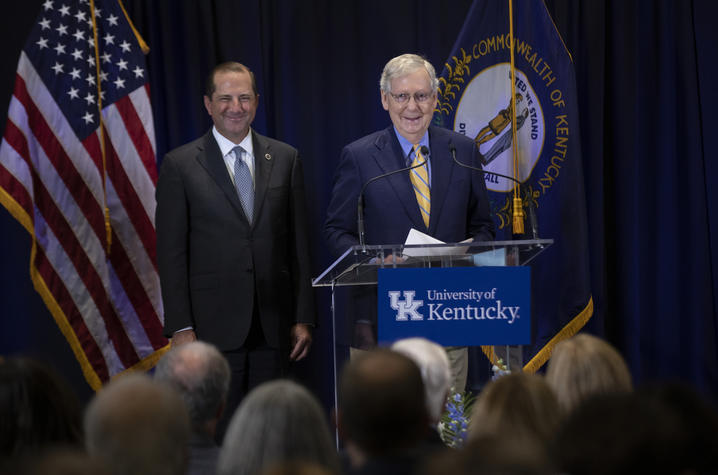
Flanked by national leaders in the fight to reduce deaths from opioid use – including Senate Majority Leader Mitch McConnell and Health and Human Services Secretary Alex M. Azar – the University of Kentucky Monday officially launched the HEALing (Helping End Addiction Long-term) Communities Study – Kentucky.
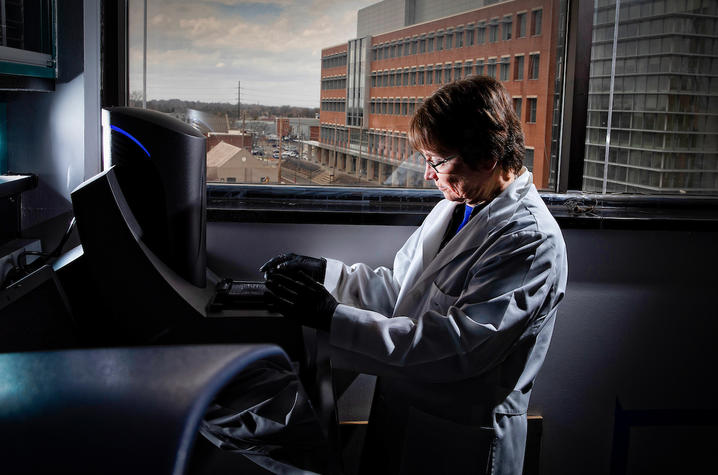
The University of Kentucky Sanders-Brown Center on Aging has received a five-year, $2.8 million grant to underwrite preclinical efficacy studies of a potential new treatment for dementia.
The drug candidate, called MW150, targets dysregulated brain inflammation driven by a stress-activated protein called p38aMAPK. The research is novel in that it is exploring efficacy in treating more than one form of dementia at the same time.
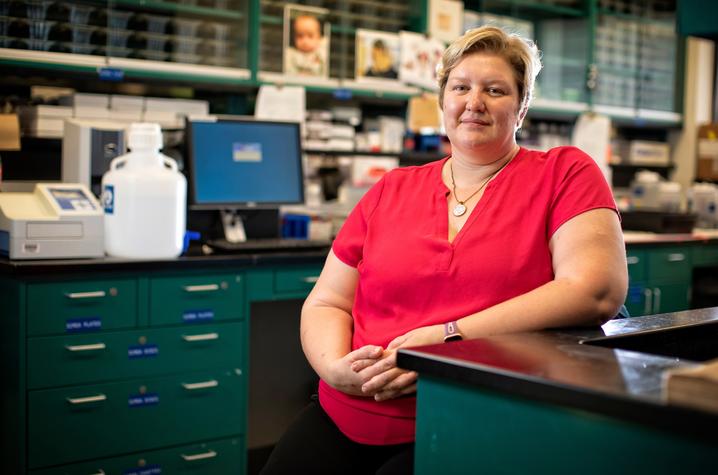
Alzheimer's disease wreaks emotional havoc on patients, who are robbed of their memories, their dignity, and their lives. It’s financially devastating as well: care for Alzheimer's patients is predicted to top $1 trillion by the time children born today are having children of their own.